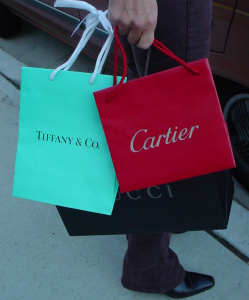Having just got back from Hong Kong this rings true. Have you noticed how ‘Bling’ is booming in developing countries such as Russia and China whilst at the same time ideas such as frugality and sustainability are taking hold in other parts of the world?
Well the reason is that consumption patterns change significantly as economic prosperity develops. A few years ago two economists called Kerwin Kofi Charles and Erik Hurst at the University of Chicago found that, all other things being equal, African Americans tended to spend more of their income on cars, clothes and jewellery. Now a new study has put a figure against this. Typically, an African American family will spend 25% more on cars, jewellery, clothing and personal care compared to a white counterpart, with the difference being made up by less expenditure on education.
This isn’t just a lazy racial stereotyping either. Looking at countries similar patterns emerge with lower income groups spending lavishly on luxury goods. So what’s the explanation? According to the economists what’s going on is that poorer people spend on luxury goods to prove to others in their immediate peer group that they are not poor. Hence what a gold Rolex says is not “I’m rich” but rather “I came from a poor background and did well”. As individuals (and nations) get richer this spending shifts from ostentatious products to more discrete services and experiences. A shift also occurs towards spending on goods that are externally directed (cars and clothes for instance) to goods that are less visible to the outside world.
In other words countries, like people, want to show off how wealthy they are but eventually this need wears off. This finding obviously has significant implications for luxury goods companies although one suspects that they know this already. As for what’s next, expect time and space to become the ultimate luxuries along with goods and services that are only available to a limited number of people that fulfil certain non-financial criteria.

